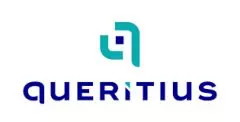2022 was a defining year in Ukraine's modern history. Despite the unjustified and heinous war waged by Russia on 22 February 2022, Ukraine has succeeded in obtaining the EU candidacy, one of the main aims of its foreign policy, when on 23 June 2022 it was granted candidate status by the European Council.
To advance towards future European Union ("EU") membership, Ukraine needs to meet certain accession criteria, defined by the European Council in Copenhagen in 1993 and in Madrid in 1995, namely:
- political criteria: stability of institutions guaranteeing democracy, the rule of law, human rights and respect for and protection of minorities;
- economic criteria: a functioning market economy and the capacity to cope with competition and market forces;
- administrative and institutional capacity to effectively implement the EU acquis and ability to take on the obligations of membership.
In this article we will take a closer look at Ukraine's ongoing path to compliance with the last criteria, in particular, the process of alignment of its legislation with the EU acquis (the body of EU law expressed in the EU Treaties, secondary legislation, and the EU's policies).
Ukraine initially declared to commence this process after the Partnership and Cooperation Agreement between EU and Ukraine entered into force in March 1998. Article 51 of that agreement provided that "Ukraine shall endeavour to ensure that its legislation will be gradually made compatible with that of the Community".
In 2004 the Law of Ukraine on the National Program for the Adaptation of Legislation of Ukraine to the EU legislation was passed, which became the basic legislative act in this sphere.
The alignment of Ukrainian legislation with the EU acquis in the first decade of the 21st century was rather slow in coming. However, this process was fostered by the EU-Ukraine Association Agreement (the "Association Agreement") which was signed in 2014 and fully entered into force in September 2017. In Article 114 of the Association Agreement it is recognised "the importance of the approximation of Ukraine's existing legislation to that of the European Union. Ukraine shall ensure that its existing laws and future legislation will be gradually made compatible with the EU acquis".
The process of legislative approximation was divided into consecutive phases as set out in Annexes to the Association Agreement. Since 2016 Ukraine has made significant progress on the implementation of the Association Agreement which involved an unprecedented amount of the EU acquis.
After receiving the candidate status Ukraine's fulfilment of accession criteria is constantly monitored by the European Commission. As of now two important official documents were issued by the European Commission assessing Ukraine's compliance as the EU candidate with the EU acquis:
- Commission Opinion on Ukraine's application for membership of the European Union dated 17 June 2022 (the "Opinion");
- Commission's analytical report following the Commission Opinion on Ukraine's application for membership of the EU dated 1 February 2023 (the "Report").
In the Opinion the Commission concluded that "Ukraine has gradually approximated to substantial elements of the EU acquis across many chapters. It has an overall satisfactory track record of implementation, while in some sectors the country is more advanced than in others".
The Report also takes stock of the situation in June 2022, when the Commission published its Opinion. It focuses on Ukraine's alignment of its laws with the EU acquis in the 33 acquis chapters, except for areas that were covered in detail by the Opinion and is further structured around six thematic clusters. The Report uses such assessment scales to describe the state of play: early stage, some level of preparation, moderately prepared, good level of preparation. The conclusions of the Report may be summarised as follows:
| Cluster | Chapter | early stage of preparation | some level of preparation | moderately prepared | good level of preparation |
|---|---|---|---|---|---|
| CLUSTER 1: THE FUNDAMENTALS OF THE ACCESSION PROCESS | Judiciary and fundamental rights (Chapter 23)* | ||||
| Justice, freedom and security (Chapter 24) | + | ||||
| Public procurement (Chapter 5) | + | ||||
| Statistics (Chapter 18) | + | ||||
| Financial control (Chapter 32) | + | ||||
| CLUSTER 2: INTERNAL MARKET | Free movement of goods (Chapter 1) | + | |||
| Freedom of movement for workers (Chapter 2) | + | ||||
| Right of establishment and freedom to provide services (Chapter 3) | + | ||||
| Free movement of capital (Chapter 4) | + | ||||
| Company law (Chapter 6) | + | ||||
| Intellectual property law (Chapter 7) | + | ||||
| Competition policy (Chapter 8) | + | ||||
| Financial services (Chapter 9) | + | ||||
| Consumer and health protection (Chapter 28) | + | ||||
| CLUSTER 3: COMPETITIVENESS AND INCLUSIVE GROWTH | Digital transformation and media (Chapter 10) | + | |||
| Taxation (Chapter 16) | + | ||||
| Economic and monetary policy (Chapter 17) | + | ||||
| Social policy and employment (Chapter 19) | + | ||||
| Enterprise and industrial policy (Chapter 20) | + | ||||
| Science and research (Chapter 25) | + | ||||
| Education and culture (Chapter 26) | + | ||||
| Customs union (Chapter 29) | + | ||||
| CLUSTER 4: THE GREEN AGENDA AND SUSTAINABLE CONNECTIVITY | Transport (Chapter 14) | + | |||
| Transport (Chapter 14) | + | ||||
| Trans-European networks (Chapter 21) | + | ||||
| Environment and climate change (Chapter 27) | + | ||||
| CLUSTER 5: RESOURCES, AGRICULTURE AND COHESION | Agriculture and rural development (Chapter 11) | + | |||
| Food safety, veterinary and phytosanitary policy (Chapter 12) | + | ||||
| Fisheries (Chapter 13) | + | ||||
| Regional policy and coordination of structural instruments (Chapter 22) | + | ||||
| Financial and budgetary provisions (Chapter 33) | + | ||||
| CLUSTER 6: EXTERNAL RELATIONS | External relations (Chapter 30) | + | |||
| Foreign, security and defence policy (Chapter 31) | + | ||||
| * The issue of Judiciary and fundamental rights was covered in the Opinion and received no assessment in the Report. | |||||
It should be noted that at the special meeting on 9 February 2023 the European Council acknowledged the considerable efforts that Ukraine has demonstrated towards meeting the objectives underpinning its candidate status for EU membership.
Ukraine's approximation to the EU acquis is also supervised and monitored by the Cabinet of Ministers of Ukraine (the "CMU").
Although no negotiations regarding EU accession have been announced yet, the CMU is planning to intensify its work in this direction. On 28 February 2023 it adopted a resolution on conducting an initial assessment of the implementation of the EU acquis (self-screening). The resolution is aimed at enhancing the adaptation of Ukrainian legislation to the EU acquis and at identifying inconsistencies and gaps that need to be addressed.
According to the resolution the ministries and other central executive bodies shall conduct an initial assessment of the implementation of the EU law acts by 30 June 2023 and submit to the CMU by 30 August 2023 the relevant reports together with the proposals on the alignment of Ukrainian legislation with the EU acquis.
Despite some good progress made in areas such as the free movement of goods or energy, there are many other fields which need considerable improvement. One is hopeful that, like on the battlefield, Ukraine's resolve will beat all expectations. We closely monitor Ukraine's efforts to bring its legislation in line with the EU acquis and will report Ukraine's progress along the line.
The content of this article is intended to provide a general guide to the subject matter. Specialist advice should be sought about your specific circumstances.
[View Source]


